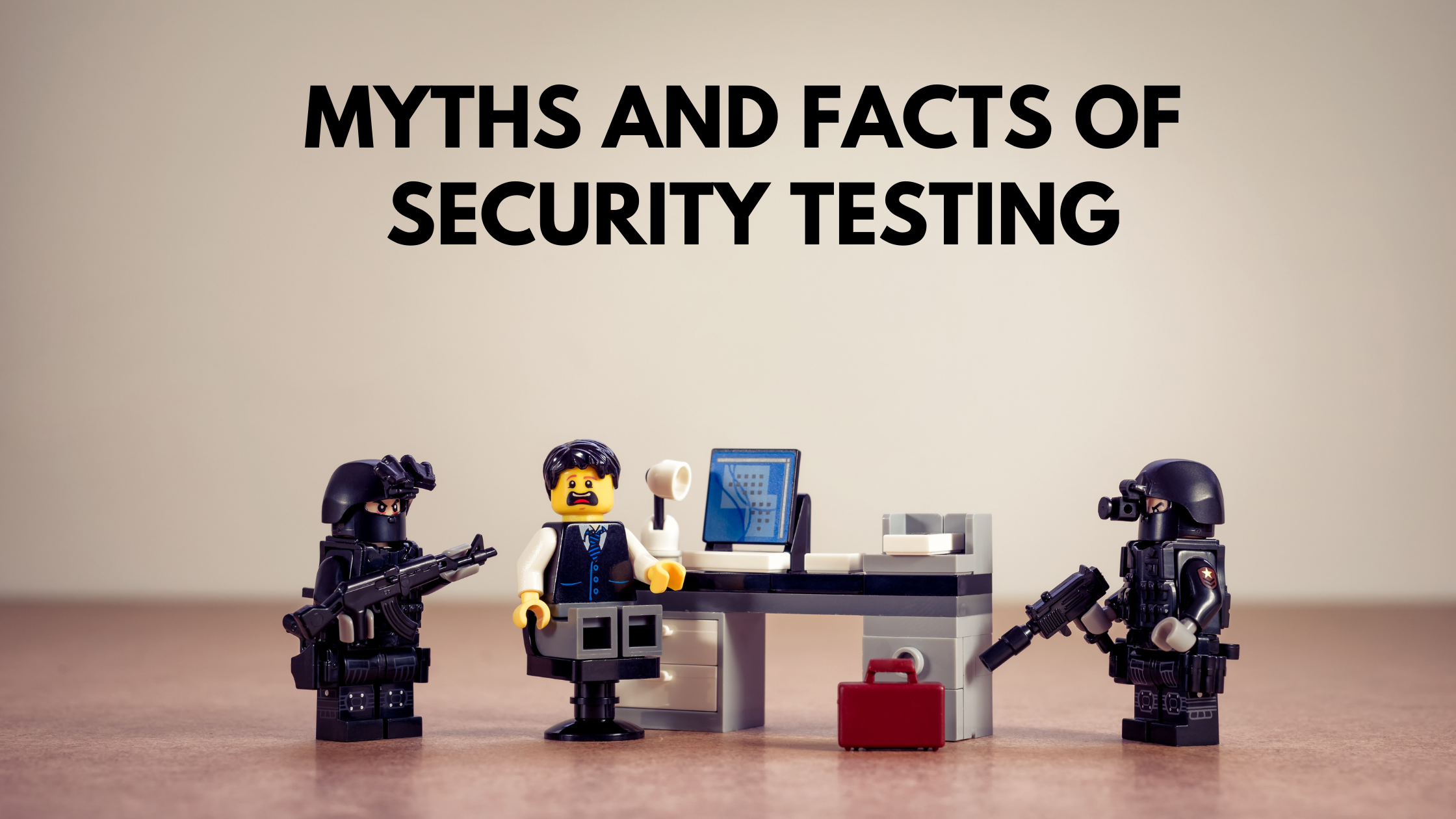Myths and Facts of Security Testing
Join the DZone community and get the full member experience.
Join For Free
Software security is extremely valuable to users, and even more to the companies. Besides building secure application software, it is crucial to consider and test security right through the software lifecycle. Security Statistics 2018 Report, WhiteHat Security revealed that “The serious number of vulnerabilities in third-party libraries and free software continues to boost at a speed that makes remediation almost impossible for teams that do not assume measures to track third-party component use.”
Therefore, it is further critical now than ever before that enterprises add a potent approach to security testing for their software products. Despite this, some organizations still lag behind the rest of industry in implementing strong security tests due to a lack of understanding of what security testing really is.
Myths and Facts of Security Tests
Let us see some of the myths and facts of security testing:
1. Security Is the Solo Responsibility of Testers
Myth
Not at all! This statement is far removed from reality. Security testing is not the job of a single group. However, a group of people from the quality, testing, and development departments must work together.
Real Facts
- The Security Testers should determine the bugs, risks, and vulnerabilities in the threat areas of the application. The task is taken further by the team of developers to make the application safe by fixing the loopholes and risks recognized by the Security Testers.
- A team of DevOps, Developers, and Security Testers must work together to complete the entire security for an application. Such core groups should then work hand-in-hand to contribute to the overall health of applications and their security.
2. Security Testing Can Detect the Maximum Number of Threats and Vulnerabilities in an Application
Myth
Security Testing is one of the varied kinds of Security Testing that can easily detect threats and vulnerabilities in the software or application. However, it is untrue that this type of testing can perform the best job alone.
Real Facts
- Security Testing is the best test practice that identifies top-risk security threats and vulnerabilities. However, it can’t be considered as a one-stop protector in the security arena.
- By emulating a hacker, security testing scrutinizes and tests a particular application and identifies a maximum number of anomalies and loopholes. However, there are some examples where lesser-risk vulnerabilities have surfaced as the main loopholes after executing or security or penetration testing. Overall, Security Testing cannot be observed as the lone reliable procedure to secure the application.
3. Only Banking Apps Necessitate Security Testing
Myth
This is one of the foremost myths that resides in the Tech world, i.e. only Banking Applications necessitate security. As everyone thinks about the logic that banking apps incorporate confidential data, and loss of such data might affect the financial fund of so many folks. In short, it denotes a great loss to many people at a time.
Real Facts
- Every company, regardless of whether the company comes under the financial or banking domain needs security testing. The myth stems from the idea that only organizations bound by ICS (International Compliance Standards) make this type of testing compulsory. However, time and again, it is observed that the cause behind the leaking and hacks of sensible information has been owing to compromising Security Testing.
- The fact is security testing secures sensible data of all applications and applications of every single sector comprise confidential data that if hacks or missing may attract irreplaceable loss to the organization of any field and size.
4. Small Companies Doesn’t Require Security Test
Myth
Disappointingly, some people residing in this domain have thought that their small company doesn’t need a security check. They do not have the idea that these small businesses are easy to attack and more vulnerable. Cyber Attackers can easily hack your confidential data and they attack big on your small unit, so try to get that mindset blown away now!
Real Facts
Each company and business needs complete security checks or assessments, no need to compromise about it!
5. A Single Security Compromise Won’t Damage the Application
Myth
Security Testing guarantees clean out of the complete application with no mark of risks, vulnerabilities, or loopholes for the long-run.
Real Facts
- There may be a chance that once a better working functionality may come back as a threat to your application and may harness the complete app’s functionality.
- The key objective of Security Testing is to eradicate all the security vulnerabilities or threats of the current and any upcoming days. Hence, making the application unfailing, reliable, and secure is most important for end-users.
6. Perimeter Security Is Sufficient to Protect Apps for Long-Run
Myth
The many or single layers of firewalls cannot be the single security network that protects an app. Firewalls are a momentary solution to check the insecurity of any app.
Real Facts
- A comprehensive test to determine the vulnerabilities and loopholes of the software app is necessary to avoid malevolent attacks in the long-run.
- This kind of test is mainly carried out before the application is released in the market for a safe and secure application. Security Testing checks each and every facet of an app as a test scenario through different kinds of security tests. Such an important type of testing certifies the software application as an unfailing, secure, and trustworthy application in the market.
Conclusion
Many big organizations have lost their reputations as they were unable to provide enough privacy guards and security to its customers. They need to understand the significance of Security Testing team and what makes them crucial to their companies’ success. Security Testing is undoubtedly a crucial process to find security-related vulnerabilities and bugs. The most important method to do that is if we deal with the myths associated with security testing and adopt truthful and more factual mindsets.
Opinions expressed by DZone contributors are their own.

Comments